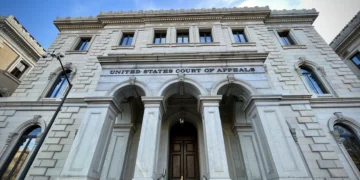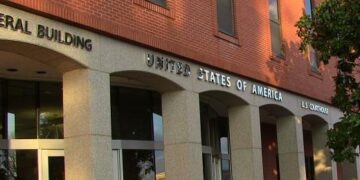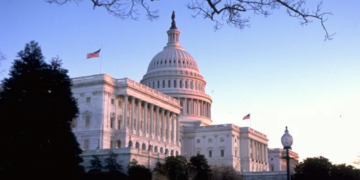Oct 17, 2024 Story by: Editor
National and state Republicans have filed an appeal against a judge’s ruling that declared seven election rules passed by Georgia’s State Election Board “illegal, unconstitutional, and void.” The Republican National Committee (RNC) and Georgia Republican Party are challenging the decision made by Fulton County Superior Court Judge Thomas Cox, who determined that the State Election Board lacked the authority to implement these rules. Cox ordered the board to notify all state and local election officials that the rules were invalid and should not be enforced.
The rules in question include a requirement for hand-counting ballots after polls close, along with two others related to the certification of election results. RNC Chairman Michael Whatley expressed strong disapproval of Cox’s decision in a statement on Thursday, accusing the judge of “the very worst of judicial activism.”
“By overturning the Georgia State Election Board’s commonsense rules passed to safeguard Georgia’s elections, the judge sided with the Democrats in their attacks on transparency, accountability, and the integrity of our elections,” Whatley said. “We have immediately appealed this egregious order to ensure commonsense rules are in place for the election — we will not let this stand.”
Alex Kaufman, an attorney representing the state Republican Party, confirmed that an emergency notice of appeal had been filed with the Georgia Supreme Court.
The lawsuit leading to Cox’s ruling was initiated by Eternal Vigilance Action, a group led by former Republican state Rep. Scot Turner. The lawsuit argued that the State Election Board had exceeded its legal authority in adopting these rules.
“Seeing the Republican Party argue that unelected bureaucrats should have the power to make new law is certainly a departure from traditional conservative values,” Turner commented in a text message to The Associated Press. “But we expected them to appeal and are prepared to fight on behalf of reining in this administrative-state power grab as long as we need to.”
Democrats and voting rights organizations have celebrated the ruling, viewing it as a safeguard against potential attempts by allies of Donald Trump to undermine election results should he lose the presidential race to Democratic Vice President Kamala Harris. Concerns were heightened after recent appointments to the five-member board, which gave Trump-backed Republicans a majority.
Election officials from various counties across Georgia had previously raised alarms about the influx of new rules being introduced so close to Election Day. They expressed concerns about the logistics and practicality of implementing them in time.
Among the other invalidated rules were requirements for delivering absentee ballots in person with photo ID and signature, mandatory video surveillance of ballot drop boxes after early voting, expanded areas for partisan poll watchers at tabulation centers, and the provision of daily updates on early voting turnout.
One of the most contentious rules required a manual hand-count of ballots by three separate poll workers to ensure that the number of paper ballots matches the electronic tallies. Critics, particularly county election officials, argued that this would slow down the reporting of election results and impose undue burdens on poll workers.
Supporters of the hand-count rule contended that it would only take a few extra minutes and wouldn’t significantly delay the reporting process, as the memory cards from voting machines could be sent for tallying while the hand-count was completed.
Cox, however, ruled that Georgia law does not authorize hand-counting after polls close, noting that the duties of poll officers are clearly outlined, and hand-counting is not among them.
Additionally, two other rules struck down by Cox pertained to the certification of election results. One required a “reasonable inquiry” by county officials before certifying results, but did not define what constitutes such an inquiry. The other rule allowed county election officials to review all election-related documentation before certifying results. While supporters argued that these rules ensured accuracy, critics feared they could lead to unnecessary delays or refusals to certify valid results. Source: AP News

















